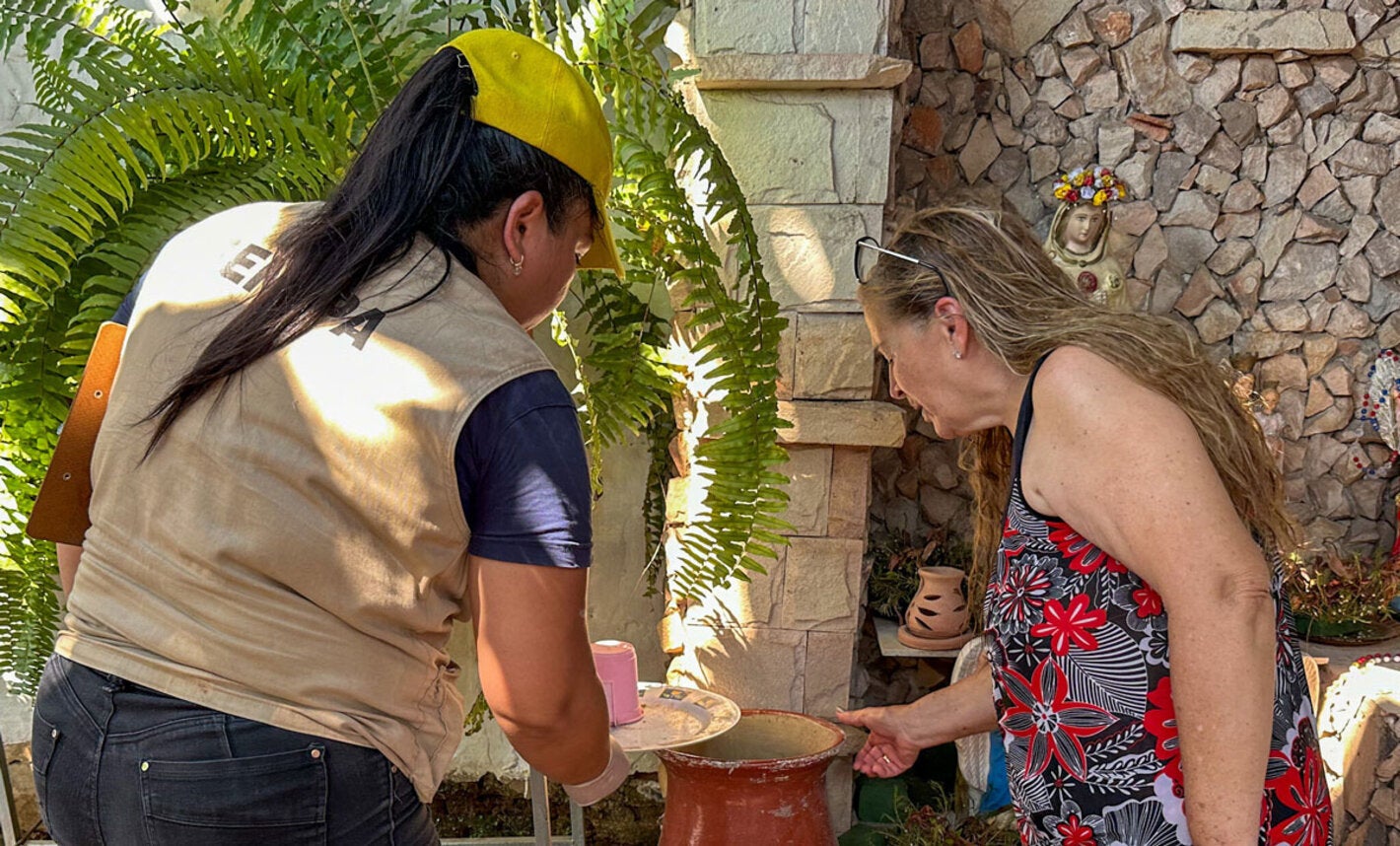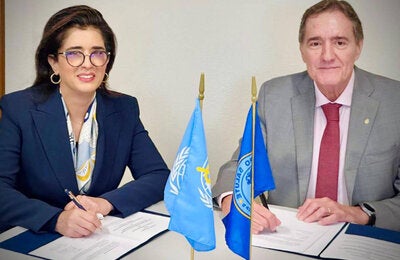
Washington, DC, 24 May 2024 (PAHO)- As a result of the increase in cases of dengue fever in the southern hemisphere and the beginning of the season of increased transmission in the northern hemisphere, the Pan American Health Organization (PAHO) urges countries of Central America, Mexico and the Caribbean to strengthen preventive measures against this disease.
In an epidemiological alert issued today, PAHO emphasizes the importance of strengthening surveillance, diagnosis and vector control actions, as well as preparing health services for the proper management of patients. The aim is to prevent complications and avoid possible overcrowding of health services.
Dengue is a mosquito-borne viral disease that, in most cases, has no symptoms. However, when symptoms do occur, they usually include high fever, headache, body aches, nausea and rash. Although most people recover within one to two weeks, some can develop severe forms that require hospitalization. These can be fatal when not treated promptly and properly.
As of mid-May 2024, the Americas region has reported more than 8.1 million suspected cases of dengue, marking a 3.3-fold increase compared to the same period last year. The countries with the highest number of reported cases are Brazil, Argentina, Paraguay, Peru, Colombia and Mexico. More than 3,600 dengue-related deaths have been reported throughout the region.
Mexico has reported more than 65,000 cases of dengue, Guatemala over 12,000, Honduras over 20,000 and Panama over 5,800. This is between 2.5 and nearly six times the number of cases reported during the same period in 2023. Meanwhile, countries and territories in the Caribbean have reported over 21,000 cases, representing a 5.7-fold increase compared to the corresponding period last year.
Faced with this unprecedented regional increase in dengue cases, PAHO urges countries to intensify efforts to combat the mosquito vector and the disease, for which there is no specific treatment.
In the epidemiological alert, PAHO emphasizes the importance of timely clinical diagnosis, early identification of warning signs, and proper management of patients to avoid serious cases and deaths. The Organization also calls on health care workers to provide clear guidance to patients and their families to monitor warning signs and seek immediate medical attention in the event of any of these signs.
PAHO offers resources and training through its virtual course on dengue, available free of charge on its Virtual Campus for Public Health.
PAHO also recommends that Member States make effective use of available resources to prevent and/or control vector infestations in affected areas and health services.
It reminds the population of the importance of eliminating mosquito breeding sites in their homes and surroundings, and to take precautions to avoid bites, such as the use of repellent and clothing that covers the arms and legs.
PAHO reiterates its commitment to support countries in the implementation of effective measures in the fight against dengue and other mosquito-borne diseases, and will continue to monitor the situation and provide technical guidance to affected countries.



